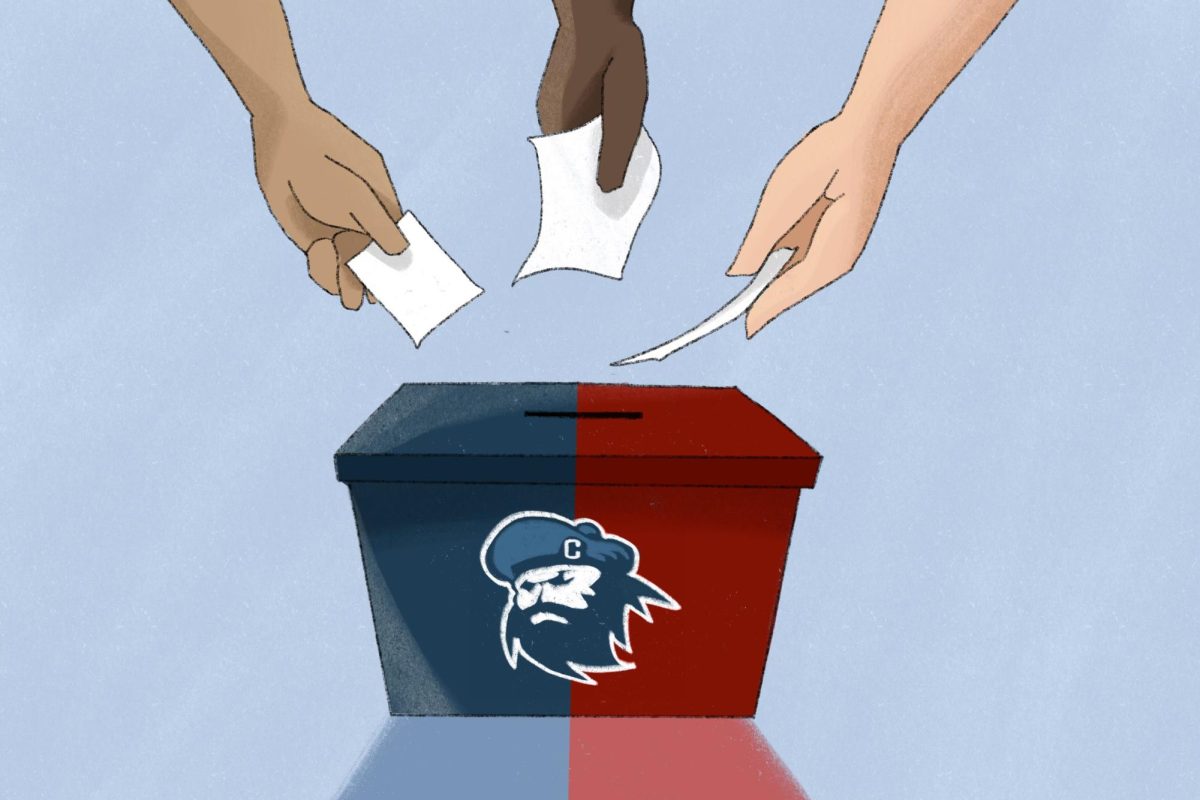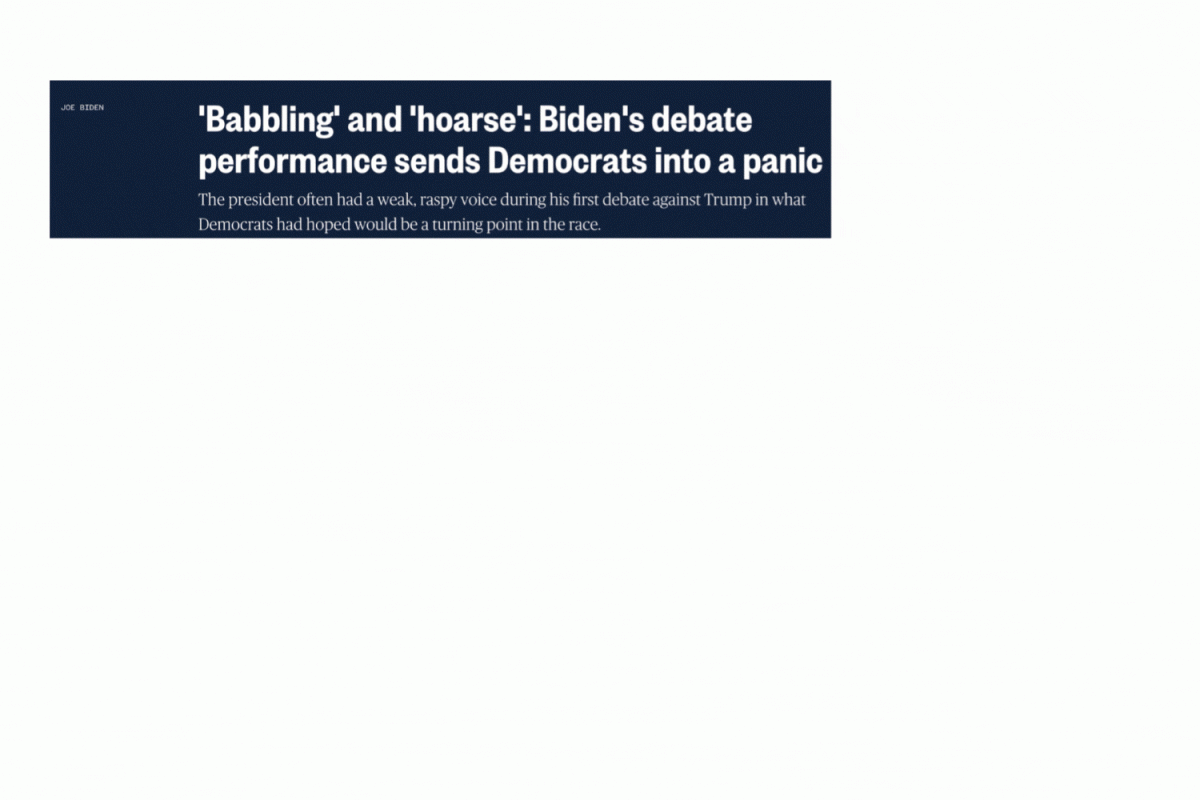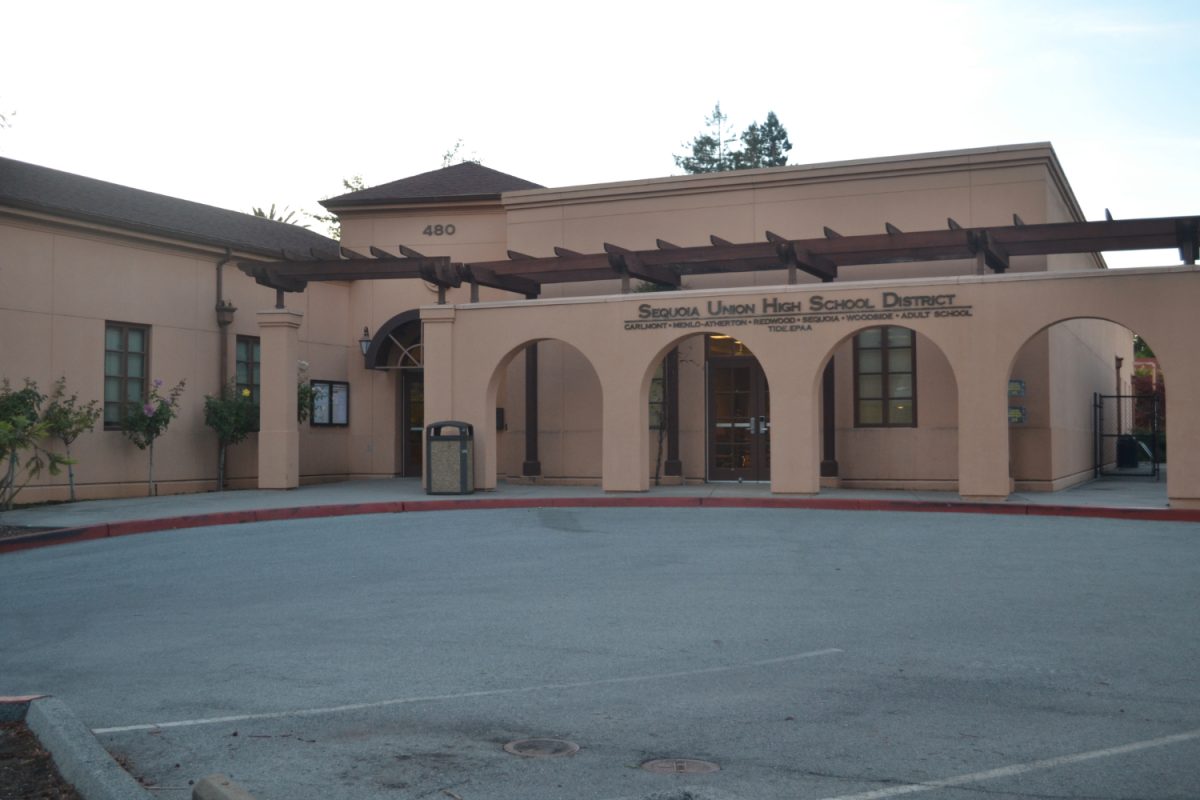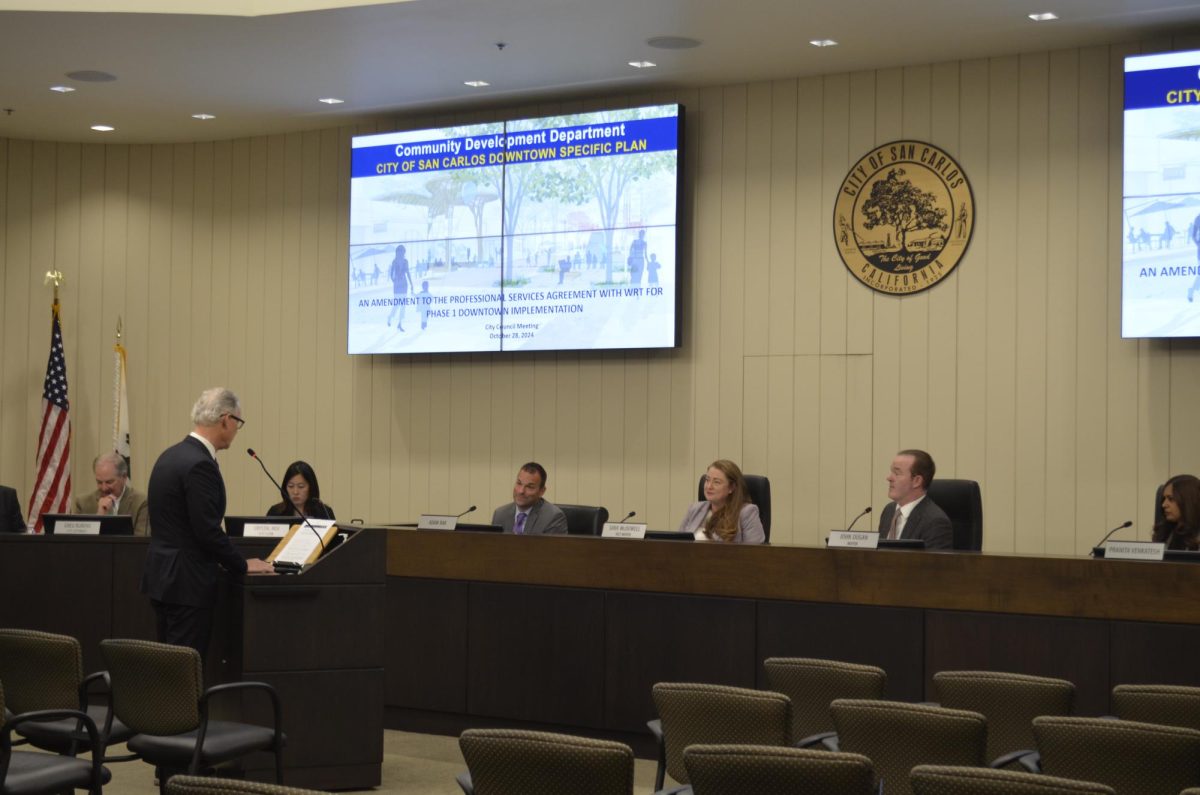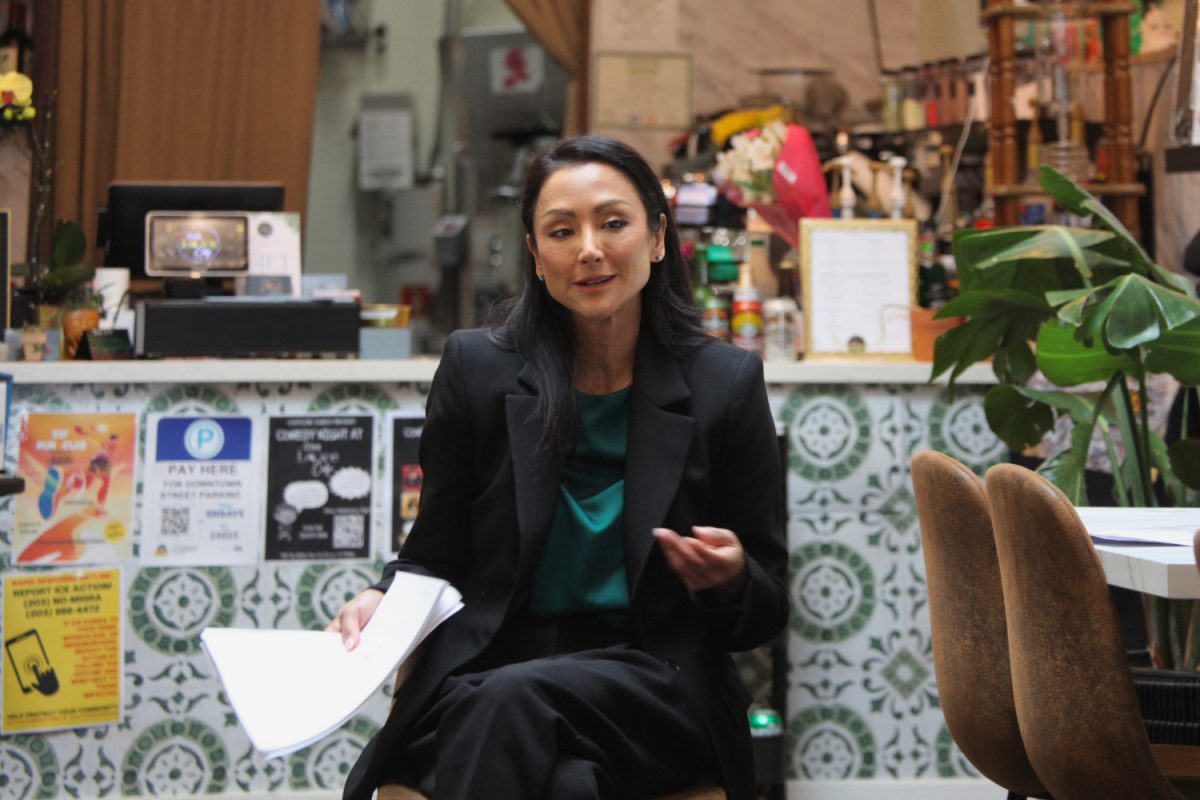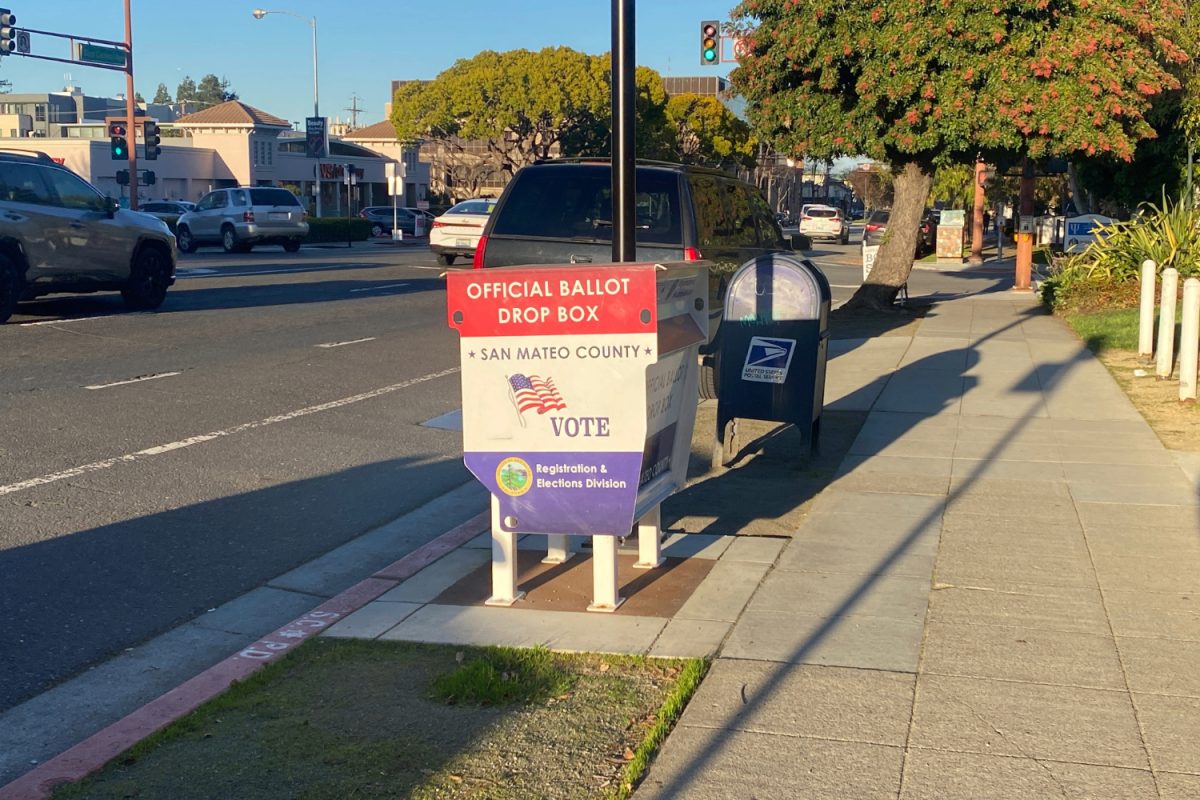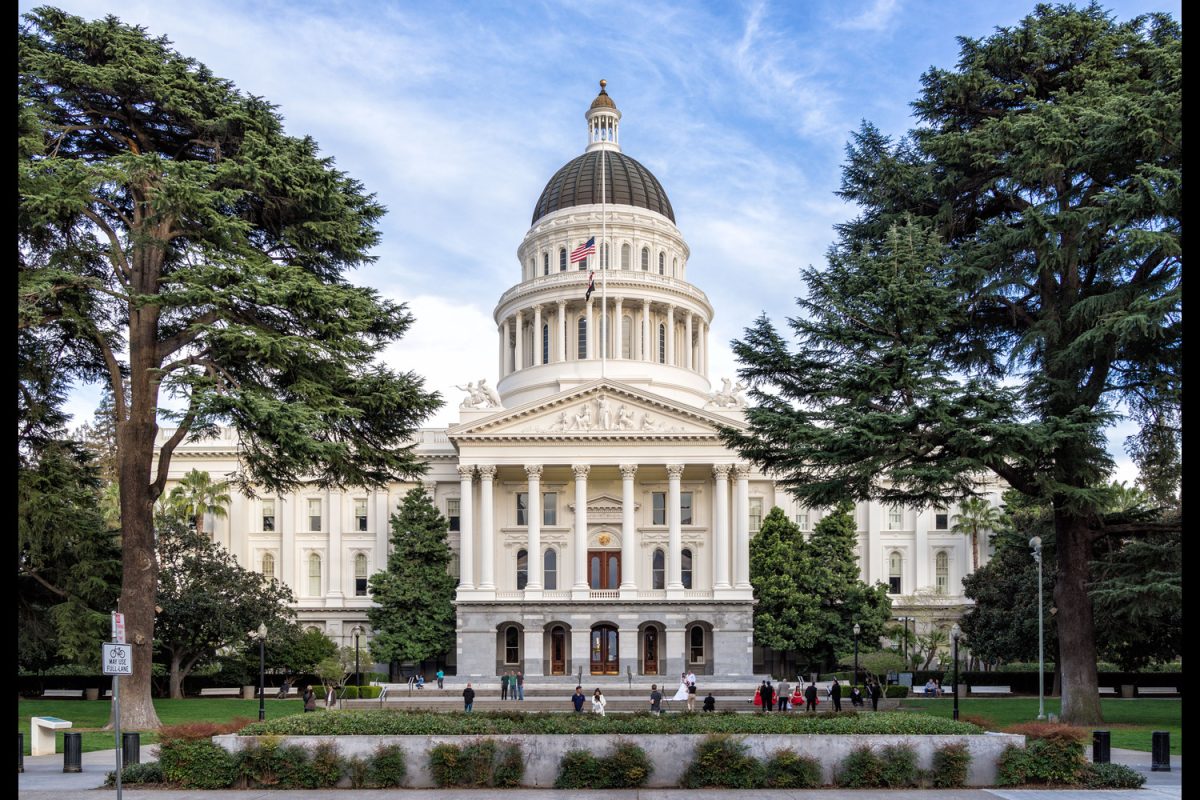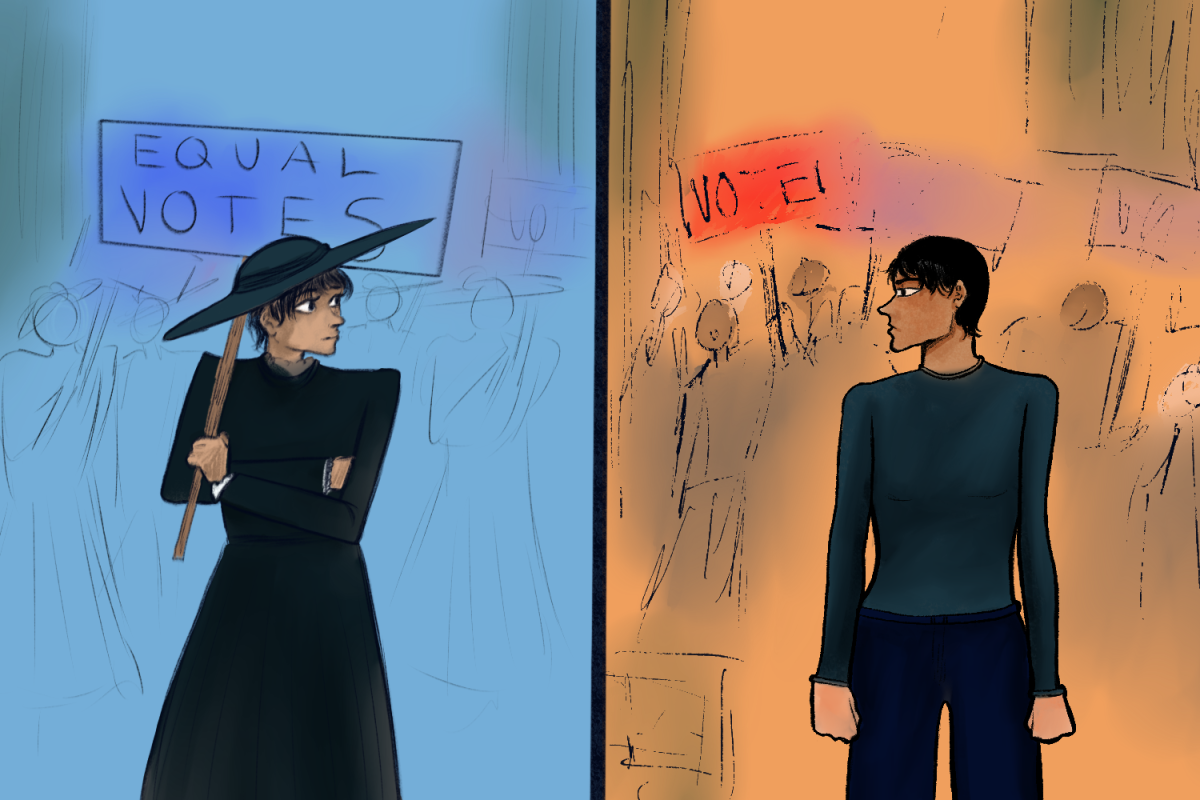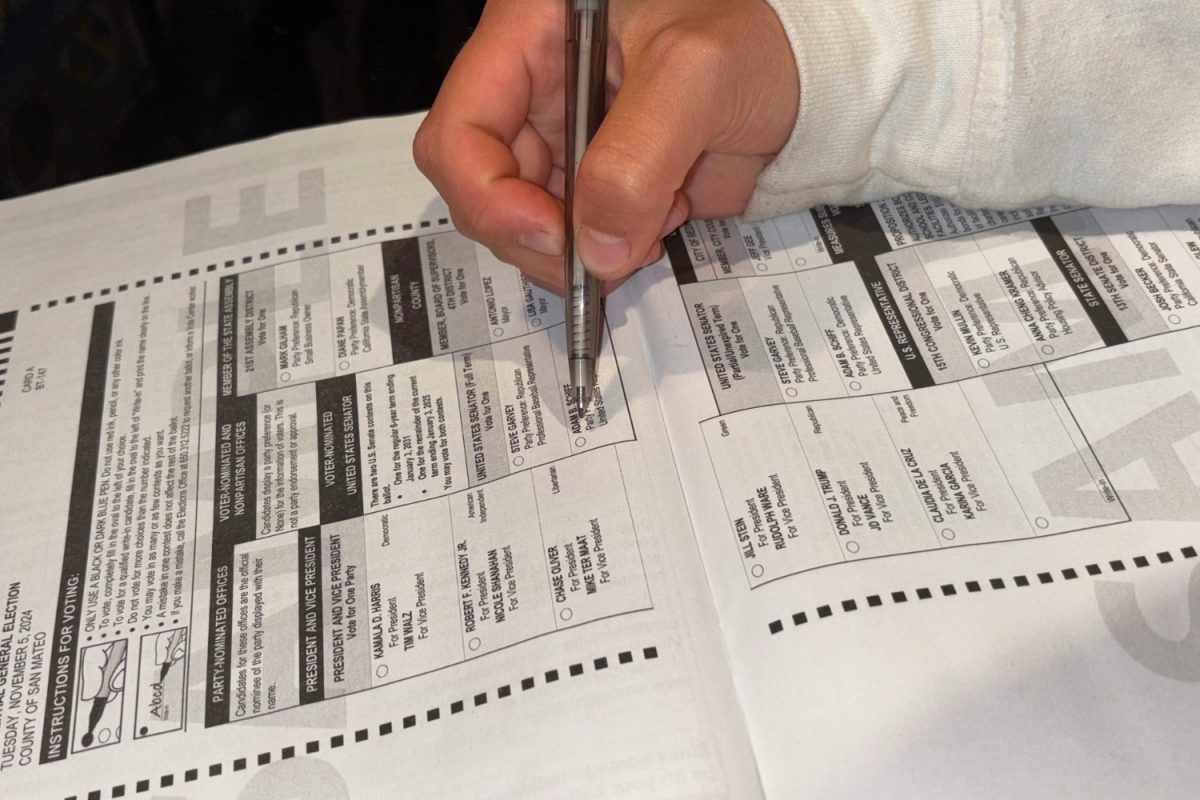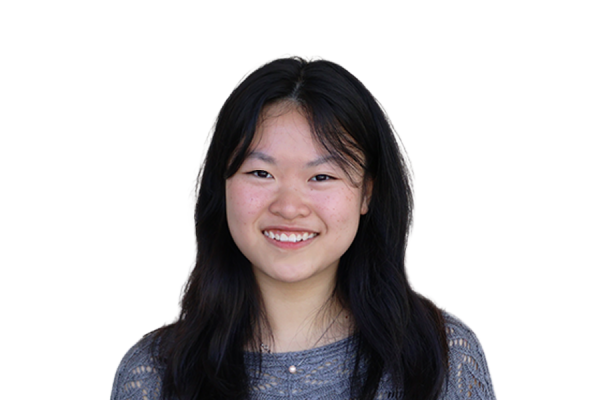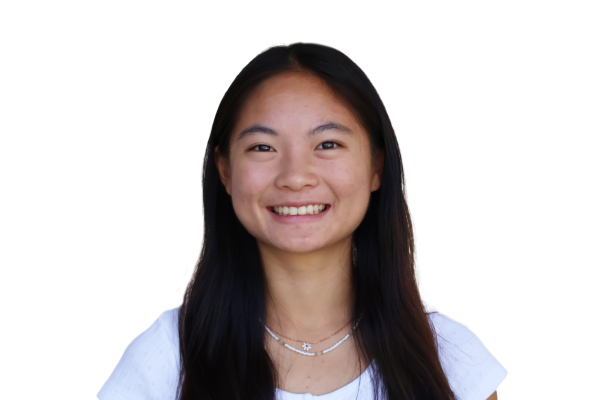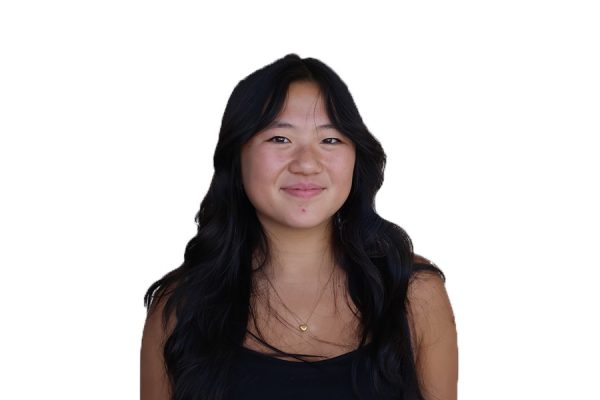Local elections trudge along as presidential elections steal the spotlight with all the glitz and glamour.
With the election season underway, local elections are often overlooked under the craze of the presidential debates. However, these elections, such as the Sequoia Union High School District (SUHSD) school board of trustees election, need support from voters just as much, especially Area B, where three candidates are running.
Local elections elect many powerful members of our community, such as city mayor and county supervisor, and are decided with citizen input and voting.
However, according to the PEW Research Center, many Americans vote intermittently. For example, 5% of Americans voted in the off year only, and 30% voted in none of the past few elections at all.
“(Federal elections) are what people tend to be all excited about and focused on. The state government has an impact as well, but mostly your local government is what has control over the right things like public safety, your health care, access to parks, traffic, and schools,” said Greer Stone, Carlmont history teacher and mayor of Palo Alto running for reelection.
Local elections are sometimes won by close races. In 2020, the Millbrae City Council election was won by a margin of 33 votes. In that same year, the Pacifica City Council race was won by a slimmer margin of 19 votes, and the Brisbane City Council was won by just 11 votes.
With local elections this close, this election on Nov. 5 will pinpoint issues of mental health amongst students, keeping and adding honors classes, as well as increasing transparency between the school board and families.
SUHSD Area B
Particularly for Carlmont students, the three candidates running in the Sequoia Area B, encompassing San Carlos and Belmont, are Daniel Torunian, Jacob Yuryev, and Mary Beth Thompson. Current Trustee Carrie Du Bois is not running for reelection.
Thompson, who is the principal at Summit Preparatory Charter High School, says that the role of people gets confused in terms of what the school board does.
“The school board is the what, not the how,” Thompson said.
The SUHSD board acts as an advisory board by setting direction, establishing an effective and efficient structure, providing support, ensuring accountability, and providing community leadership as advocates for children, the school district, and public schools, according to the California School Boards Association.
With this definition, each candidate has ideas of their own as to how the district should move forward.
“I support bringing back the honors classes that were removed, while also focusing on what we can do to ensure that we have extremely diverse representation in these courses and that all our students are able to succeed in them,” Yuryev said, Carlmont graduate and student board member for the SUHSD board of trustees for the 2023-24 school year.
This falls under the larger umbrella of detracking policies: reducing the levels of course rigor in order to put students in the same track. Tracking would be having different levels of course rigor. For example, the reason why Carlmont doesn’t offer Honors Chemistry or Honors Physics is a result of detracking. Yuryev also supports bringing back remedial classes for students.
Torunian, former PayPal Chief Information Officer, member of the Redwood City Police Advisory Commission, and the first vice chair of the San Mateo Republican Party said, “I think, full transparency, it appears that Jacob and I are more aligned than not.”
“I am not for detracking as I understand it,” Torunian said.
Thompson however, has a more complex view on the issue.
“I am for detracking, but I’m also for honors and Advanced Placement (AP) classes,” Thompson said.
She says that she supports detracking in the way she doesn’t want students’ perceived ability before freshman year to already be decided in course rigor. However, she is for tracking based on personal choices later on.
“I don’t think we should be 100% necessarily detracked. I’m not going to bring anything back to the table that says we should get rid of it,” Thompson said.
Despite differing views on detracking, all three candidates agree on some sort of improvements to support students’ mental health.
“I think that voters should really be looking at mental health. Over the past couple of years, there have been a couple of devastating tragedies in our community,” Yuryev said. “As a school board and as a school district, it is our responsibility to provide our students with the tools and the resources necessary for them to be healthy mentally, emotionally, and physically and be able to succeed both in and outside of the classroom.”
Torunian agreed that student safety and mental wellness, and “maybe even student and teacher safety and mental wellness, are paramount.”
“I would like to see us do more in that space, but do it in a way where we also bring some level of accountability to parents,” Torunian said.
Thompson believes that adults put too much pressure on the students to succeed and take honors classes.
“We’re not promoting their whole self … What else are we doing to create, not just reactive plate pieces of the puzzle, but responding to this mental health crisis to create more preventative ways of supporting our students?” Thompson said.
Thompson believes that if the student has one trusted adult in school, they’re more likely to show up. And if they’re more likely to show up, they’re more likely to learn, engage, and interact with their peers. She also mentions that the adults have to be in a space of wellness too.
“So, are we providing the right support, development, and wellness for the adults in the building so that they then can become those supports for our children?” Thompson said.
In terms of what each candidate thinks about other candidates, each has a unique role or experience that sets them apart.
“I think what you see with me is someone who’s willing to take a stand. I’m here to help the next generation of students be successful. So, I think what you will see from me is very good clarity on where I stand on the issues,” Torunian said. “I will always be data-driven in my approach, and I will be succinct and direct to the point. I will not shy away from conflict, but I also will do my best to ensure that that conflict gets resolved in the most effective and productive manner.”
“Jacob and Daniel are great in their own right, but my platform is very different from theirs, primarily based on my background. Neither of my opponents is a parent of young children,” Thompson said.
Thompson said that what separates her from her opponents is that “I understand the complexities and the nuances of a school system from so many different angles and perspectives.”
“Education is extremely personal, it’s not a business,” Thompson said.
This sentiment echoes the concerns of Yuryev, who feels that education has become less personalized.
“Over the past couple of years, the board has slightly lost touch with the day-to-day experience of a student in our district,” Yuryev said.
Yuryev said he wishes “to bring back an understanding and feel for what the average student experiences look like within our school districts.”
“Both of my opponents and I have the same goal, and it’s to provide our students the best possible public high school education. The only differences are our thoughts and ideas on how to get there,” Yuryev said.
Tangible Impact
This November, constituents can vote for three different candidates and their three ideas on how a district should be run. When asked about tangible impacts years from now, each candidate had different opinions.
“I want to ensure that there is funding for student opportunities, whether it’s more spots on all our sports teams, more spots within our clubs, arts, and music programs, or other extracurricular programs that we offer,” Yuryev said.
Torunian said he’d like to leverage the context of San Mateo County’s location, “To our north, we have some of the leading pharma-biotechnology companies. To our south, we have the leading technology companies.”
“I would like to see more curriculum around technology; maybe each high school adopts a particular business vertical, like biotech or Artificial Intelligence (AI) machine learning,” Torunian said.
Thompson also has ideas for the future.
“I want to make sure that our district is setting you up to bloom in the real world. Have conversations. Be able to talk to people who don’t look like you or who don’t come from the same background as you. Be able to connect on a level that is more realistic for your college classroom, for your workplace,” Thompson said.
Whichever way, they all agree that voting is important to enact the aforementioned changes.
“This (election), in particular, is a school board election. It’s supposed to be nonpartisan. It doesn’t matter if you’re a Democrat or a Republican; you’re voting for the person who’s right to help our schools and our students succeed,” Thompson said.
Both candidates emphasize that local elections, like school board races, transcend political affiliations and focus on selecting leaders who can genuinely impact education and community well-being.
“Most of the decisions that we were all abiding by or living with were coming from our local city councils, from our board of supervisors, from our local school boards,” Stone said.
“To me, they’re independent of what your political association may or may not be,” Torunian said. “It was a bit of an awakening for me to see how much influence local elected officials can have and the importance of making sure high-quality elected officials support us.”
Yuryev agreed, “That’s why local elections are so unimaginably important because of the level of impact they have on every single one of our students in our school district.”
Torunian said that voters have the impact to change outcomes significantly and that many years ago, San Mateo County was a staunchly Republican county until it shifted 50 years ago.
“I admit I wasn’t hoping to be the center of this particular local election, but I am thrilled that it gets people talking about local elections and why they really do matter,” Thompson said.

